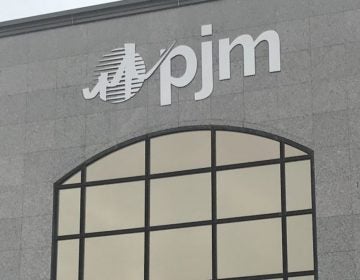What Stockton University’s new Atlantic City ‘Island Campus’ will look like
The project to overhaul Atlantic City’s economy is about to go into overdrive. Not only is the city government facing an end-of-year deadline to dramatically cut its budget or face an unprecedented state takeover, but a key recommendation to spur development appears set to begin bearing fruit, possibly within a few weeks — in the form of a new campus for Stockton University.
The creation of the Atlantic County Development Corporation was among several recommendations offered a year and a half ago by Gov. Chris Christie’s advisory commission on gaming, which was tasked with analyzing the resort city’s financial troubles and coming up with a rescue strategy. The not-for-profit AC Devco was set up last year and is poised to begin construction of its first project, a new $200 million beachside campus for Stockton that will accommodate 1,800 students.
The new campus will help rejuvenate the Chelsea neighborhood in Atlantic City’s southern section and demonstrate that there are avenues of promise for the struggling, poverty-stricken municipality beyond gambling and tourism, project backers say. And it will allow Stockton to finally realize its decades-long effort to build an “island campus” in the city and move past last year’s failed bid to take over the former Showboat casino, a debacle that led to legislative hearings and the departure of the university president.
“We believe that Atlantic City is going through a renaissance, and we have every intention of being an anchor part of that renaissance,” said Dr. Harvey Kesselman, who was appointed Stockton’s new president in December. “We can’t solve all of the city’s issues. But we can be part of the solution, along with private investors.”
Kesselman said initial construction could begin by June 30 or soon after, depending on how quickly several entities involved in the project can sign off on final details.
The work will commence as Atlantic City Mayor Don Guardian and the city council scramble to come up with a five-year budget-reduction plan. Under the terms of legislation Christie signed last month, the city must cut as much as $30 million from its 2017 budget plan by the end of the year to bring it into balance and prevent a sweeping takeover that would allow state officials to cancel union contracts, sell off city properties and its water utility, dismiss employees, and overrule council decisions.
The legislation also requires casinos to make PILOT payments to Atlantic City instead of taxes, ending a cycle of property tax appeals and refunds that has burdened the city with hundreds of millions of dollars of debt. Other casino assessments will be redirected to reduce that debt and the state will provide a bridge loan to the city, which narrowly avoided bankruptcy last month while legislators battled over terms of the rescue package.
Stockton’s expansion plans
If the island campus is built as planned, it will cap off a lengthy effort by Stockton University to expand in the city.
The main campus of the 8,700-student public college is 13 miles away on a 2,000-acre wooded expanse in Galloway Township. Environmental protections on the land and steady enrollment growth have forced it to look elsewhere to build new student housing, classroom, labs, and offices. In Atlantic City it already has classrooms and offices at its Carnegie Center, and operates the Dante Hall Theatre and Noyes Arts Garage.
Stockton also offers classes in Manahawkin in Ocean County, Woodbine in Cape May County, and Hammonton in western Atlantic County.
Under the previous president, Herman Saatkamp, the university reportedly tried six times to expand into the city over a dozen years. AC Devco president Chris Paladino said he was involved in serious discussions to develop a campus near Revel casino when it was being built in the late 2000s, but with that doomed casino’s struggles to open, a challenging economic environment in that part of the city, and other obstacles, enthusiasm for the project waned.
Stockton later negotiated with Goldman Sachs and Ares Management real estate funds to obtain the right to build on the site of the old Atlantic City High School in the Chelsea neighborhood. A plan to build a Hard Rock Casino there had failed, but the real estate funds were still trying to maximize their return on the project and were asking too much for the land, Paladino said.
In 2014, Atlantic City’s gambling industry succumbed to growing competition from newer casinos in New York, Pennsylvania, Delaware, and other states, and four casinos closed, including Showboat. Saatkamp seized the opportunity for a “quick hit” solution to a university expansion, Paladino said, and made a deal to buy the shuttered property and turn it into a 4,000-student campus with classrooms, housing, administrative services, and a working hotel and restaurants.
But it emerged that an agreement between Showboat’s previous owner and the neighboring Trump Taj Mahal barred use of the property as anything but a casino hotel. Saatkamp was heavily criticized for allegedly misleading university trustees about the restriction, and he quit in September. Though the city government moved to nullify the agreement, Stockton again abandoned its expansion plan and sold offShowboat to another developer, Bart Blatstein.
At that point, several factors came together to make the new Island Campus possible, said Paladino, who also heads AC Devco’s forerunner, the New Brunswick Development Corporation. He had his partners had already started up the new organization with seed money from Atlantic City’s Casino Reinvestment Development Authority (CRDA). South Jersey Gas was interested in building headquarters in the city and got involved. And Goldman Sachs and Ares Management needed to dispose of the Chelsea property and were willing to offer a deeper discount.
“What you try to do with these things, is you try to create critical mass,” Paladino said. “The Chelsea section of town, and that site, had all the right components to it. It was in a stable neighborhood. The land was kind of big, expansive, and really fit well for what they were trying to accomplish. We were able to actually acquire the land at a much deeper discount from the real estate investment funds, because the funds were timing out. Now we’ve taken that Wall Street return out of the process, and we started to have meaningful conversations.”
On the boardwalk
AC Devco now owns several properties in Chelsea, including the former high school site and two adjacent properties on the boardwalk that will together host the campus’s three main buildings. Another boardwalk property owned by AC Devco is being used as a parking lot and could be developed for Stockton in the future.
One of the boardwalk lots will become a $93 million residence hall for 522 students with a coffee shop and other retail on the first floor, Kesselman said. The building will have a gym, dining options, surfboard storage, and other amenities available to students who live there or who are visiting from the Galloway campus.
Next door, AC Devco will build the Gateway project, a $35 million parking garage structure with 800 spaces, topped by a new four-story headquarters for South Jersey Gas. Paladino said he’s been talking to a service provider that “benefits the broader community” that could also open a space on the ground floor.
On the third property, on the other side of Atlantic Avenue, the university will put up a $35 million academic building with classrooms and other educational space for 1,800 students. An existing city park across the street will complement the new buildings, Kesselman said. When the campus opens in 2018 it will initially accommodate 1,000 students, he said.
Funding sources include tax credits issued by the state Economic Development Authority, which is backing $50 million in county bonds; $17 million from the CRDA; $18 million from Stockton’s sale of the Showboat; $6 million from South Jersey Gas; $2 million from AC Devo; and $70 million in lease-revenue bonds for the parking garage and dormitory building, according to the university.
Kesselman said the university is looking forward to the new housing, since the overcapacity Galloway campus has had to house students in rental hotels along Whitehorse Pike. But the island campus will also solidify the school’s commitment to Atlantic City; boost its hospitality, tourism, education, and social work programs; and give students a new way to experience their college years, he said.
“We believe the student of the future needs to be able to navigate in an urban environment, and in a suburban-slash-rural environment, like the main campus,” he said. “For us, this is not new. It sort of completes what we want to do.”
Paladino said the campus’s “urban edge” could help the university attract more students from within New Jersey, out of state, and abroad. It will employ locals, make it easier for Atlantic City residents to attend Stockton, and provide a pool of new workers interested in living in the city, encouraging businesses to operate there, he said.
And crucially, it will bring year-round activity to a city that has been historically dependent on a June-to-August vacation economy, he said.
“We will change the tempo of that neighborhood,” Paladino said. “If you were able to do this, either AC Devco or others, in four or five different places throughout the city, 24 hours a day, 7 days a week, 12 months a year, you could make some real change in Atlantic City. The real impact of this project is February 7, on a rainy Thursday afternoon, when there’s 1,700 people coming and going.”
______________________________________________________________
NJ Spotlight, an independent online news service on issues critical to New Jersey, makes its in-depth reporting available to NewsWorks.
WHYY is your source for fact-based, in-depth journalism and information. As a nonprofit organization, we rely on financial support from readers like you. Please give today.








